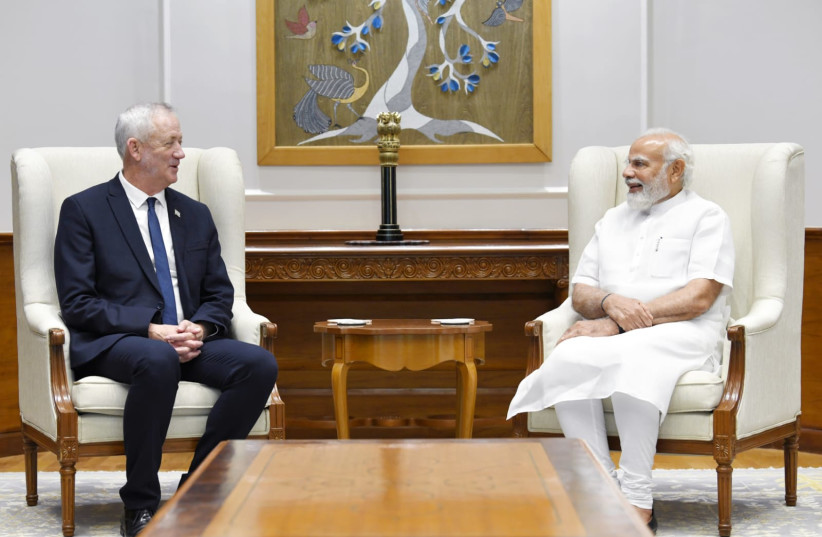With India completing its 75th year of Independence on August 15, it should be understood that its struggle for “Azadi “(independence) from British imperialism was long and filled with sacrifices made by extraordinary individuals. Though the history books speak about numerous such personalities, many still remain in the shadows. This article is about one such forgotten hero who made a significant contribution to India’s independence and its social reform.
Abraham Barak Salem, an Indian nationalist, Jewish social reformer and later a Zionist, was born in 1882 in Cochin, in the princely state of Kerala. He belonged to the “Meshuchrarim,” a community of Jewish slaves who were freed and accompanied the Sephardi Jews in their immigration to India following the 16th-century expulsion from Spain.
This community of Sephardi Jews was popularly addressed as Pardesi (foreigner/white) Jews. But the Meshuchrarim, though Sephardi, were treated with neglect by the self-proclaimed Pardesi Jewish community. Though many believed that all these different Jewish communities would exist in harmony, but contrary to that expectation there was significant segregation and discrimination among them.
Salem was vocal about the discrimination that Pardesi Jews instigated against the black Jews and members of the Meshuchrarim community. They did not allow them to sit on the benches, nor call on them to recite prayers and were not even granted the permission to marry white Jews and were denied the right to be buried in the Pardesi Jewish cemetery. Salem saw these as similar to the caste discrimination that was prevalent in India and fought to change them and thus emancipate the community.
He ardently believed in “Satyagraha” and “Ahimsa” (nonviolence) and firmly trusted that social reform within his community and independence from the British could be achieved only through Gandhian principles. This belief gave him the courage to fight against the discrimination faced by the black Jews and Meshuchrarim by bringing them both together and boycotting the entry to the Pardesi synagogue and also practicing disobedience against the synagogue authorities.

His protest forced the Pardesi Jews to make amends and eventually allow entry to all the members of the Jewish community. On a similar note, he also campaigned for allowing lower castes’ entry into the local Hindu temples and was viewed as a social reform leader by local Hindus, Christians and Muslims. The use of Gandhian ideals and his propagation among the masses earned him the title “The Jewish Gandhi.”
Salem was ambitious and earned his law and bachelor’s degree from Madras in 1902, becoming the first person from his community to achieve this level of education. His life in the city of Madras and interactions with John Matthai, the second finance minister of independent India, and C. Rajagopalachari, the veteran congressman, opened his affiliations with the Congress Party and its leadership. He began his political activities in the 1920s by coordinating the activities of the Cochin Port Labor Association in the 1920s.
He was actively involved in the Indian independence struggle from the 1920s. He worked as one of the first three secretaries of the Indian States’ People’s Party founded under the presidency of Jawaharlal Nehru, an organization that served as a wing of the Congress Party in the princely states of pre-independent India. In 1929, Salem represented the princely state of Cochin at the Lahore Session of the Congress Party where they adopted the “Poorna Swaraj” (complete independence) resolution from British rule.
Visiting Mandate Palestine
SALEM ALSO visited Mandate Palestine in 1933 and after that visit he was deeply attracted to the Zionist cause. The connections he had with Zionist leaders like Yitzhak Ben-Zvi, Moshe Sharett and David Ben-Gurion helped him organize the smooth emigration of Cochin Jews to Israel in the 1950s.
Though he faced criticism from Congress leaders, Salem saw no contradiction between his commitment to Indian nationalism and his growing interest in Zionism and believed that Indian independence was “the key to the solution of the Jewish state in the Holy Land.”
However, this was not a view shared by most Indian nationalists, who were disturbed by the colonial aspect of Zionism and its territorial claim based upon religious identity. He even appealed to prime minister Nehru to establish diplomatic relations with Israel, but due to the political compulsion from Maulana Azad, Nehru went back on that decision and relations were only established in 1992.
Despite obtaining an immigration certificate for his family after his first visit to the Holy Land, he never made aliyah. Instead, he called on his Jewish brethren in India to “go forth and have a stake in the land of their fathers.” He believed that he would be a non-entity in the new state and could do more in public life in Cochin where he was well established. He then retired from social life and passed away on May 20, 1967, at his house in Mattancherry.
Today there is an A.B. Salem Road in Mattancherry, Kerala, named after him. In the Teen Murti House in New Delhi, the official home of India’s first prime minister Jawaharlal Nehru, there is a large photograph of Salem with Nehru.
A.B. Salem represents a chapter of Indian independence history that’s not often remembered. His love for his motherland, the sacrifices he made for reforming his community and his struggles for Indian independence must not be forgotten for posterity.
The writer is a doctoral student of Israel Studies at the University of Haifa.
